Trigger warning: Mentions of rape, abuse, homophobia
Growing up, Abhina Aher was a great admirer of her mother’s dance skills. Her expressions, movements, and the grace with which she performed would leave the child spellbound, and over the course of time, inspired to take up dance as well.
Today, 44-year-old Abhina is the founding member of Dancing Queens, India’s first trans-led dance troupe, launched in 2013.
Apart from this, she has spent the last 26 years working extensively with different organisations to mobilise the trans community, advocated for policy-level changes, and helped her community get basic civil rights like education, health, employment and education. Through her NGO TWEET (Transgender Welfare Equity and Empowerment Trust) Foundation, she has been at the forefront of providing relief and rehabilitation to trans women and men.
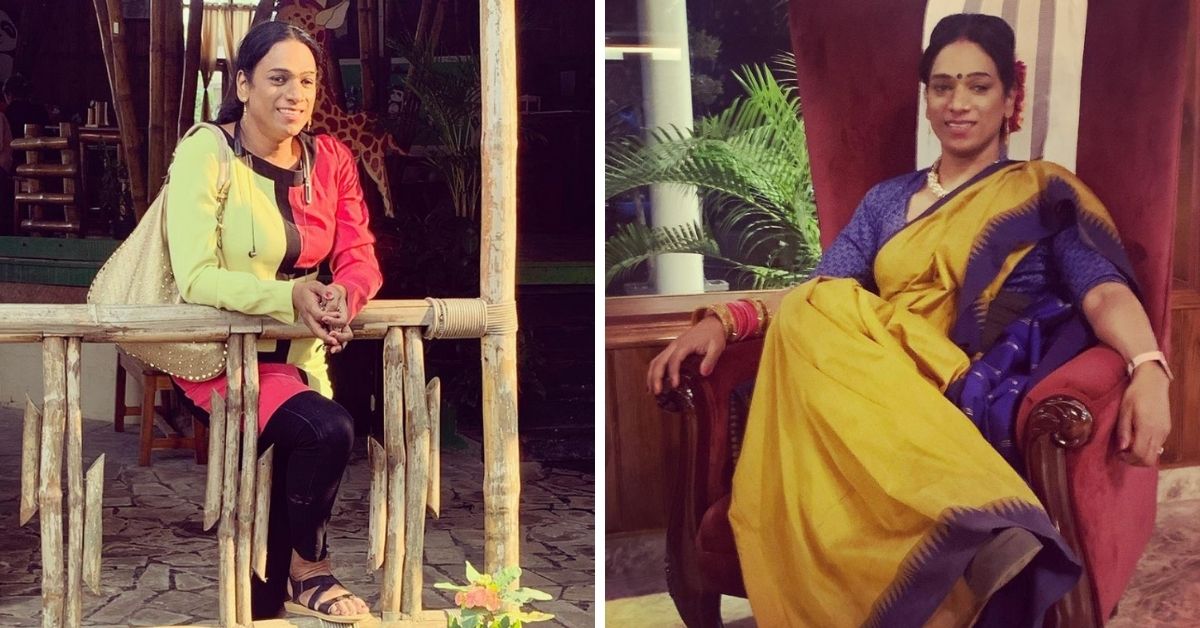
‘Being myself was not easy…’
It was in her twenties that Abhina decided to embrace her identity.
“This was in the early 2000s, a time when topics of gender identities and rights were nothing short of an alien concept. If a person did not behave as per societal expectations of the gender they were assigned at birth, the norm was to rudely label them as ‘hijra’ or eunuchs,” Abhina tells The Better India.
The internet was yet to become an integral part of middle-class homes, and making an informed choice and acquiring knowledge on gender identity was a challenge.
“I experienced gender dysphoria at an early age, and the mirror became my biggest enemy. I did not like the physical changes I was going through, and despised the hair that was growing on my face. I did not have anyone to confide in, as my aai (mother) wanted to create an image of a conventional family after my father passed away. It took me years to accept my own identity due to lack of information and exposure,” Abhina says.
Abhina’s father passed away when she was only three. As a single parent, her mother Mangala worked as a clerk with the Brihanmumbai Municipal Corporation (BMC) to make ends meet. Being an accomplished folk dancer, she would often participate in dancing shows and take up small roles in Marathi movies for additional income.
Abhina says that she loved dressing up in her mother’s beautiful sarees and putting on makeup to dance to Marathi folk songs. At first, this gained her praise from Mangala. But as her age progressed, the same act became despicable.
Fear was ever present. At home, it was her mother’s fear of what society would say about her son’s ‘feminine’ behaviour. In school, it was her classmates’ attempt to make sure she was constantly afraid.
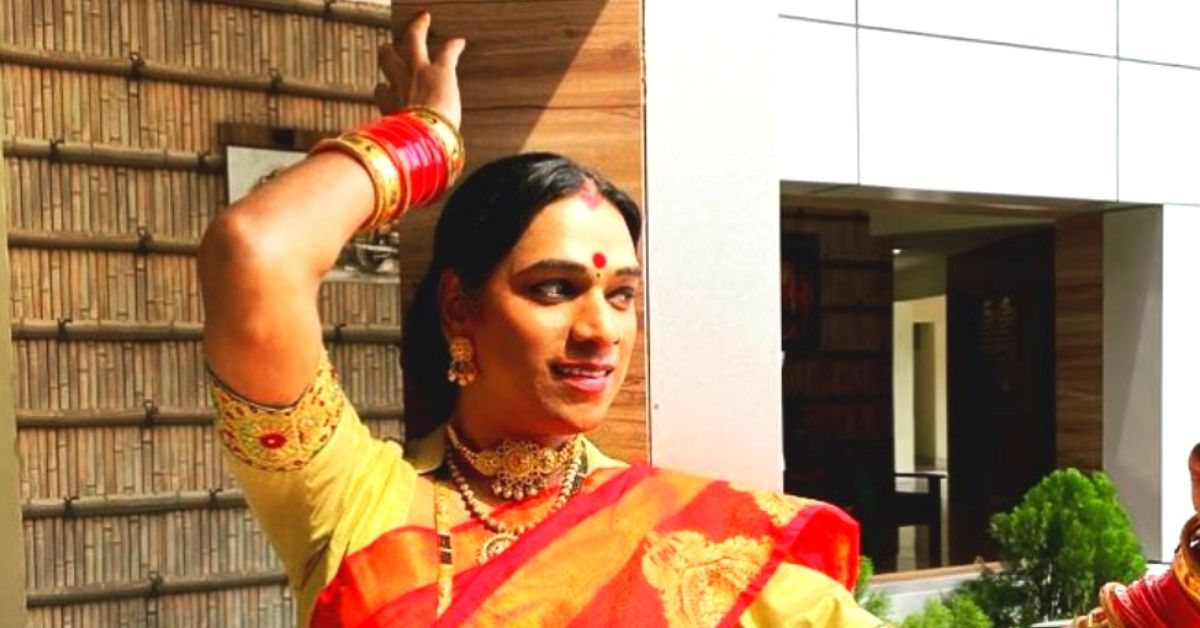
“Taunts and mockery aside, some of my seniors went to the extent of inserting a wooden ruler inside me. The incident scarred me for life, and I did not go to school for weeks. Children in my neighbourhood also teased me, and threw stones at me for not behaving ‘appropriately’. With everyone against me, I preferred dying,” she adds. “I tried to take my own life three times.”
To escape further trauma, she complied with her mother’s wishes and stopped shaping her eyebrows and putting on makeup. Abhina did her graduation in Economics and diploma in Software Engineering.
At 27, she was finally able to undergo a transition surgery.
Finding her silver lining
Abhina says that her transition was not easy — the hormonal changes affected her mental wellbeing, and acceptance from society was a far fetched concept.
She says no one gave her a job due to contrasting documentation, according to which she was male — people either stigmatised her, or asked her to change the way she dressed. With no option left, Abhina worked as a sex worker for nearly two years to support herself and her mother.
But there was a silver lining.
Over time, her mother came to accept her identity, and even confided in her about the fears she held. “For nearly six years, my mother and I did not speak to each other. But after the surgery, she said she was scared for my future. She hugged me and said, ‘It does not matter what your gender identity is. What matters is that we have the same blood group, B+.’ Since then, she has been my biggest support system,” Abhina says.
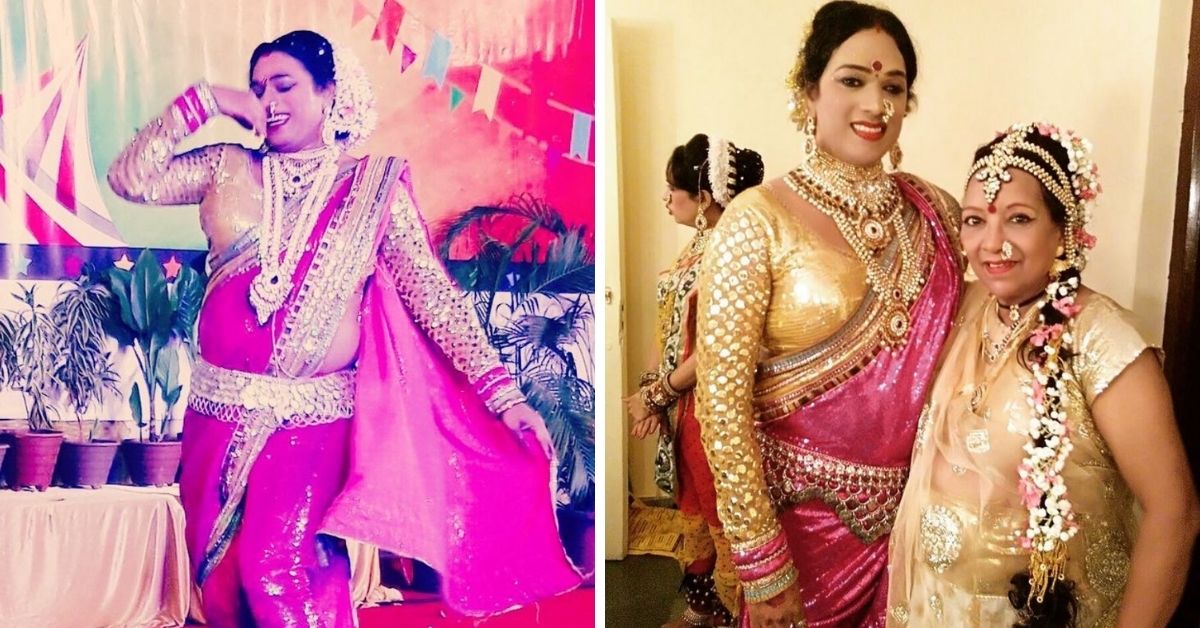
During her time as a sex worker, she came across many NGOs that worked with HIV-affected members of the community. Soon, she was introduced to Humsafar Trust.
“I worked with Humsafar for nearly eight years — from handling helpline numbers to capacity building and advocating for fundamental rights. Meeting and interacting with so many people eased my pain as well. Their journeys were worse than mine. Working here completely changed my perspective and I stopped cursing my fate,” she says.
In 2013, she left Humsafar and started TWEET to work for the welfare of trans men and women. “I also wanted to work for other minorities like female sex workers, migrant workers affected with HIV, etc,” says Abhina.
“Due to the patriarchal nature of our society, there is more stigma around and discriminaton against people who transition from female to male. Gender-based violence from their own family members is high. There are so many trans men who are abused because society wants to prove they are female,” she says. “For this, I started a helpline number to help nearly 250 trans men find employment in various non-profits.”
Aarav Singh (24) is one such person. After his transition surgery, he was shunned by his family, before finding solace with TWEET. “Initially, I worked towards mobilising trans men in LGBTQI-related events. I started with just one or two trans men, and gradually, managed to get more than 200. TWEET started the dialogue among trans men like me and brought several changes,” Aarav, who is now TWEET’s board member, tells The Better India.
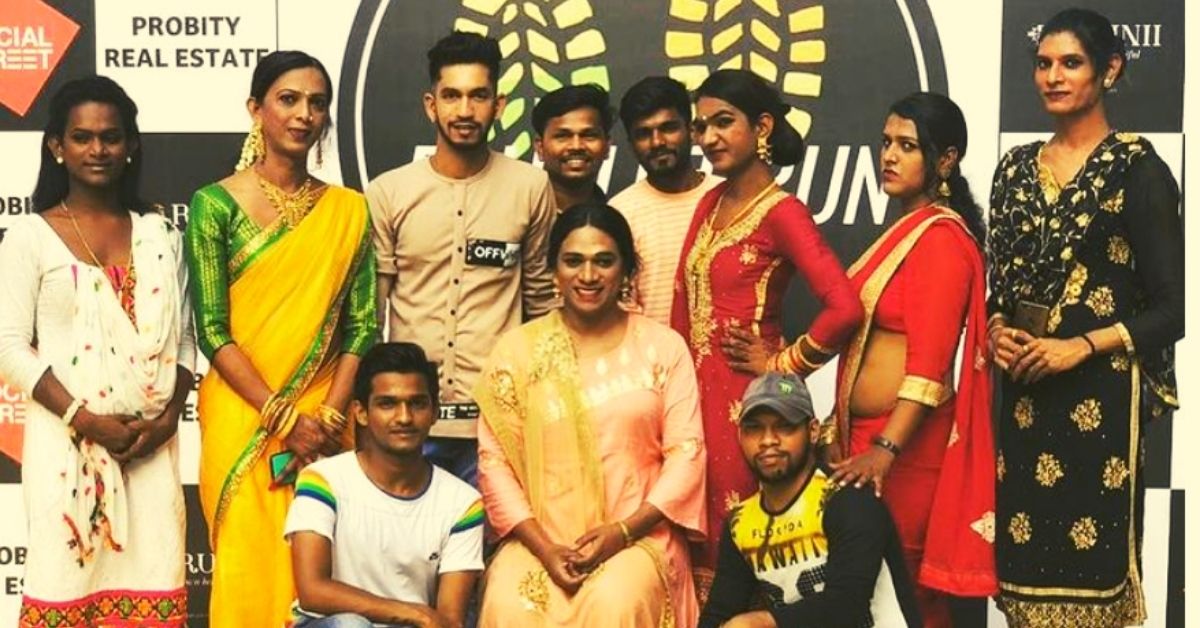
Abhina also formed ‘Dancing Queens’ to raise funds for the LGBTQI community for the pride walk. She organised several stage shows, at the helm of which was Mangala.
“My mother loved participating in our shows due to our cause. Through our dances, we raised awareness on gender and sexuality. In 2012, I was invited to perform in Prague for the pride march as a chief guest. My troupe recently went to Sweden. We have also performed in Delhi and Bihar,” Abhina says.
Alongside, she says she also worked with National AIDS Control Organisation (NACO) on transpersons’ health. She also rallied and advocated for the Transgender Persons (Protection of Rights) Act, 2019, that declared trans people as the ‘third gender’.
For the last two years, Abhina has been working as a Technical Expert with I-TECH India to strengthen the trans movement in Northeastern states of Mizoram, Nagaland and Manipur.
Due to insurgency, border disputes and drug menace, the trans community is unable to raise their voices. She is spreading awareness and empowering the marginalised by educating them on their civil rights.
“India has a long way to go in achieving rights for everyone. That said, we have made some progress, like the scrapping of Section 377. The trans community has been acknowledged as the third gender. There are online portals where we can make changes in our documents. We can avail trans identity certificates. There are also 13 Garima Grih or shelter homes for trans communities across India. We have been given skill building for jobs too. Our priority now should be achieving civil rights like inheritance, education, adoption, marriage, etc,” she says.
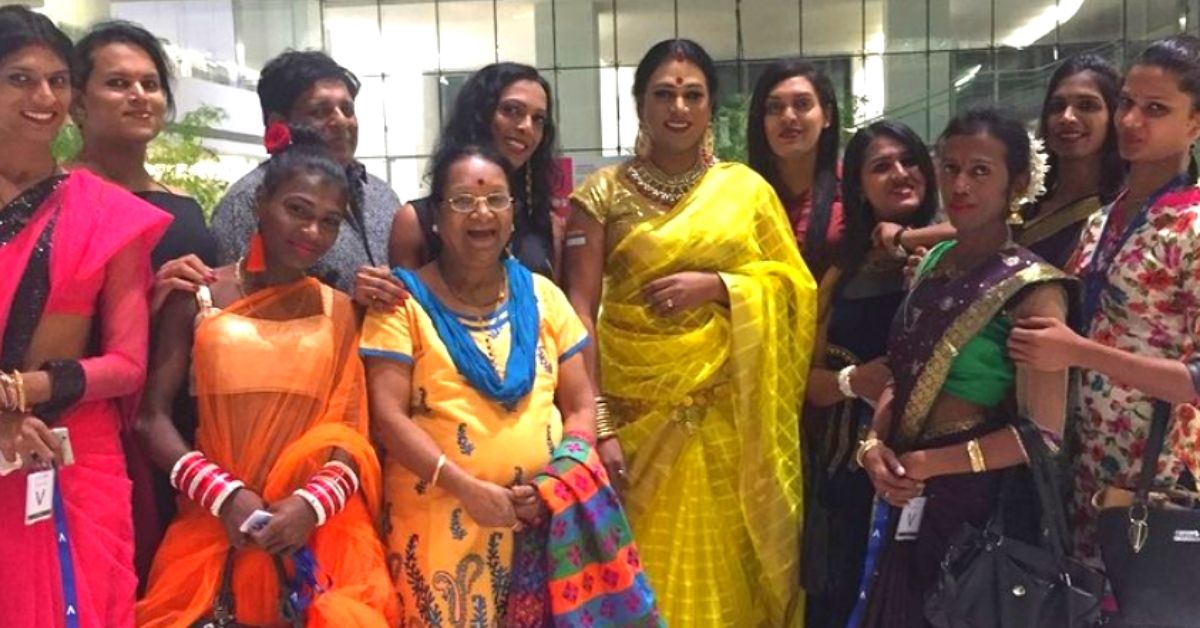
When Abhina had started her journey, she was outcast even by the trans community for wanting to get a job instead of begging, she says. But today, she is happy to see several trans persons working in the social sector. Even Mangala joins in on her mission to sensitise other parents to love and accept their children through Sweekar, a support group.
All images are sourced from Abhina Aher/Instagram
Those struggling with thoughts of suicide or self-harm may find a list of helplines to access here. Or, they may call on 9152987821.
Sources:
No comments:
Post a Comment